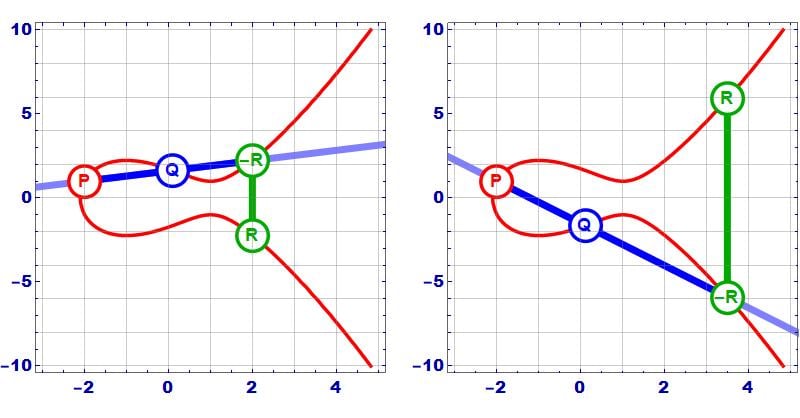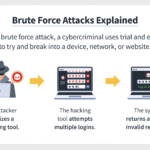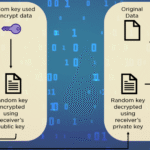Elliptic Curve Cryptography (ECC) has emerged as a cornerstone of modern cryptographic systems, providing robust security with relatively small key sizes. Its unprecedented efficiency paired with high security has made it a preferred choice in numerous applications. This article delves into the various domains where ECC is utilized daily, emphasizing its significance in enhancing digital security.
One of the most prevalent applications of ECC lies in the realm of secure communication protocols. The Secure Sockets Layer (SSL) and Transport Layer Security (TLS) protocols, which safeguard internet communications, often employ ECC. When you browse a website that uses HTTPS, you unwittingly benefit from this technology. ECC facilitates the generation of public-private key pairs, enabling the establishment of a secure connection between your browser and the server. By employing ECC, these protocols not only provide encryption but also authenticate the communicating parties, thereby bolstering the trustworthiness of online transactions.
The domain of mobile devices is another area where ECC finds ubiquitous application. Given the constraints imposed by battery life and processing power, modern smartphones and tablets leverage ECC for secure communication. Mobile-based messaging applications, such as WhatsApp and Signal, utilize ECC algorithms to encrypt messages, ensuring that only the intended recipient can access the content. This asymmetric encryption is crucial in preserving the confidentiality of personal conversations and sensitive data, forming an essential component of user privacy in the mobile ecosystem.
Furthermore, ECC plays an instrumental role in digital signatures, which serve as electronic equivalents of handwritten signatures. These signatures provide a mechanism for verifying the authenticity and integrity of digital messages or documents. Many online services, including email protocols and software distribution platforms, employ ECC to create digital signatures. This cryptographic assurance allows recipients to trust the origin of information, significantly reducing the risk of tampering and fraud in electronic transactions.
In the financial sector, the applicability of ECC extends to securing online banking transactions. Banking apps and platforms often utilize ECC-based encryption to protect sensitive user data during transmission. With the rise of digital wallets and financial service apps, such as PayPal and Venmo, ECC ensures that personal and financial information is transmitted securely, thereby safeguarding users against potential breaches and unauthorized access.
Another noteworthy application of ECC is in the field of blockchain technology. Several prominent cryptocurrencies, including Bitcoin and Ethereum, utilize elliptic curve cryptography for key generation and digital signatures. The simplicity and efficiency of ECC enable quicker transaction verifications and contribute to the overall security of blockchain networks. As decentralized finance (DeFi) continues to gain traction, the reliance on ECC illustrates its importance in securing digital assets and facilitating seamless peer-to-peer transactions.
Moreover, the Internet of Things (IoT) has emerged as a burgeoning area where ECC is increasingly implemented. With billions of devices connected to the internet, ensuring secure communication between these devices becomes paramount. ECC is utilized in securing communications in devices ranging from smart home gadgets to industrial equipment. The lightweight nature of ECC allows constrained devices with limited processing capabilities to implement robust encryption, making it a fitting solution in securing IoT environments.
Healthcare applications further demonstrate the versatility of ECC. With the digitization of health records and telemedicine, ensuring the privacy and integrity of sensitive patient information is critical. Healthcare providers often adopt ECC to encrypt electronic health records (EHRs) during transmission and storage. By employing ECC, medical professionals can uphold patient confidentiality while still benefitting from efficient data sharing among authorized entities.
The impact of ECC also extends into the realm of secure document sharing. Within various industries, including legal and corporate sectors, the need for sharing sensitive documentation securely has led to the adoption of ECC. Services that provide encrypted document storage and sharing frequently leverage ECC to protect files. This ensures that sensitive information remains accessible only to authorized users, safeguarding intellectual property and confidential company data from unauthorized access.
Additionally, ECC is applied in authentication systems, particularly in two-factor authentication (2FA). Many online services now implement 2FA to enhance account security. Utilizing ECC, these authentication systems require not only a password but also a second form of verification, often in the form of a time-sensitive code. Through this dual-layered approach, ECC bolsters the security framework, making it significantly more challenging for potential attackers to compromise accounts.
In conclusion, elliptic curve cryptography is an indispensable component of the digital security landscape, finding applications across various domains. As the reliance on digital communication and transactions continues to surge, the importance of ECC in providing secure, efficient, and reliable systems cannot be overstated. From secure internet communications and financial transactions to the safeguarding of personal data in mobile devices and healthcare, ECC’s role is integral to maintaining the integrity of our increasingly interconnected world.







Leave a Comment